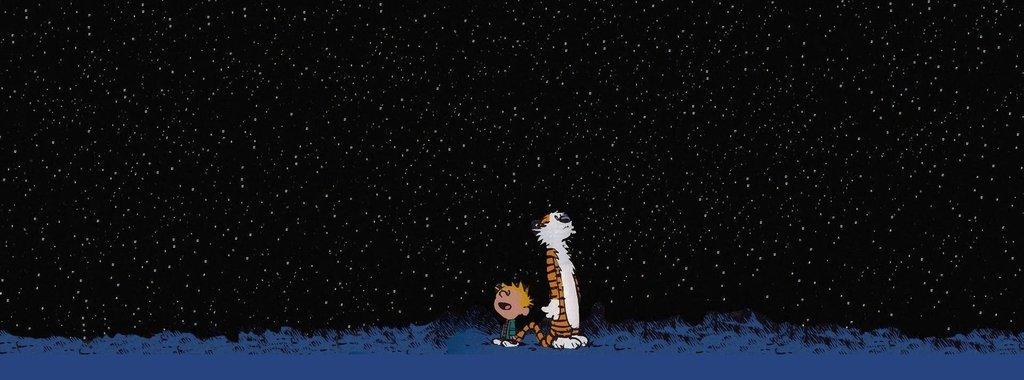-
Posts
13781 -
Joined
-
Last visited
Content Type
Profiles
Forums
Events
Everything posted by Sayonara
-

Evolution of intelligent life. Questions.
Sayonara replied to matter's topic in Evolution, Morphology and Exobiology
There can never be mastery of a habitat through evolution. Let's say we finally overcame some hypothetical barrier to ultimate greatness as a species by evolving to be perfectly adapted to living with it. Are those conditions going to stay the same forever? No. That's why evolution can't ever lead to anything in particular. -
"I noticed you're writing a... something. Shall I do it for you? YES | NO."
-

Evolution of intelligent life. Questions.
Sayonara replied to matter's topic in Evolution, Morphology and Exobiology
Woahhhhh Intel... I didn't see your comments above my post because it took so long to write and I was busy admonishing a real troll. Chill! I think matter just got a bit confudebazzled. -
I see what you're trying to do - in this case you most likely will need a neural net because higher-order boolean decisions will probably not be sufficient to the task. It may be worth investigating the possibility of getting this set up as a sort of background project for the computer science center, so all the happy geeks can get involved in it.
-

Evolution of intelligent life. Questions.
Sayonara replied to matter's topic in Evolution, Morphology and Exobiology
Intel makes some very good points. I think it would help if I cleared up some of what I said because I did not explain as fully as I could have done, which makes his analysis of the evolution of off-earth life appear to conflict with mine. First off, Intel's point about evolution not leading anywhere is very true. There is no "eventual goal". At best there are only temporary goals (although the word 'goal' itself implies directed effort exists, which is not the case). Actually this is a FANTASTIC point that really needs to be understood in order to grasp most of the possible answers to your question - I'll sticky an article thingy when I have some time (prolly next week, have a funeral this weekend). Understanding how natural selection works is vitally important to understanding how evolution 'moves' a species, although it is by no means the whole story. Species do not evolve towards a phenotype (the expressed result of genetic combination) in the way that, say, a racing car is designed and redesigned to be more suited to the task at hand. Rather, species are continually stripped off to leave the best examples in place of individuals who are not susceptible to the majority of high-level risks for that species. I'd like to point out right now that this is a very crude and amazingly dramatic way to describe it, but it will do for these purposes (also I am quite tired, so screw you hippies). To extend our racing car example, imagine a fleet of cars were built - all with slightly different attributes - and raced during the Grand Prix. Those that aren't suited to such driving would crash, and only the best-suited would finish in good time (if at all). Therefore the lunatic who made the weird car fleet in the first place would base all his next batch of wacky cars on the common attributes among the winners. Oh my god, this is the crudest explanation of anything ever. Anyway... back on track... although I said that there would be "similar organisms", do not take this to mean that you would find tigers, dolphins and men on your alien planet. It is true that there are certain attributes that provide an advantage, such as camoflauge stripes, a streamlined body or an opposable thumb. However, these can be expressed in innumerable combination and with such vastly wide-ranging properties that two animals sharing the same basic principle in an adaptation can be fantastically different beasts. I do have to question "The answer to your comments on evolution being similiar on another planet is absolutely not", because if we are talking about life on other worlds we have to assume some small degree of convergence at some point purely due to the numbers involved. Most of population biology and ecology is maths. Yes, evolution is a lot more likely to take a disimilar path than a similar one, but there's a good chance (due to carbon chemistry and the 'limits of reasonable adaptivity') that the distribution of adaptations and life form compositions across the galaxy fall along a curve, and we don't yet know where we appear on that curve. Who knows - maybe we are the freakiest mutazoids in the universe? On the 'intelligence via adaptation' issue, there is a pitfall in saying that we are no more adapted than E. Coli or mosquitoes. Sure, we are (most likely) no more well-suited to our environments than those organisms are to theirs - but we are better adapted to riding scooters or cooking a nice roast. This is where adaptation tends to make a big difference, because the selective pressure acting on pre-human primates clearly did bring about conditions that were conducive to the formation of cogent and abstract thought process. Mosquito evolution obviously took no such turns. However, as Intel says there is a lot more to intelligence (ho ho ho) than simply the best adaptations at the right time. While there is some evidence that bipedalism, advanced communication, and the ability to fashion, use and co-ordinate tools all contributed greatly to the development of our intelligence, it's not an easy thing to study. In short, what I am trying to say is that there is a chance that we will find similar adaptations if there is other complex life out there. There are only so many ways to overcome certain problems biologically. However, if we do find it the way those adaptations are expressed physically might not be what we recognise or expect. In fact in all likelihood it would look... superfreaky. -
Neural networks aren't exactly easy to program. I have severe doubts you will find anyone who would help make one out of sheer goodwill, but stranger things have happened (and of course for your needs a neural network might not actually be necessary). Have you heard of ALICE? Investigating this program and others like it might help you to determine exactly what you need.
-
Why is none of this acid dripping into the Religion forum yet?
-
Here's what I'm using tomorrow:
-
It's for the good of the world dammit. Anyway it's not like you posted the chainsaw pic.
-
Ah, that's a picture of my old mallet. ps - omfglol
-
I bought a mallet.
-
I'm just disappointed nobody spotted the deliberate mistake yet... ...unless they did and are cunningly lying in wait for the person who trips over it.
-
I already pointed him in the right direction, but apparently he kind of knows this teacher expects a specific answer, which is plainly stupid anyway but that's the education system for you. TO THE GOOGLEMOBILE!
-
DISSOLVED oxygen, fs!
-
He was talking about you? Bwaa haaa.
-
If I understand correctly he wants to remove the dissolved oxygen to create a control solution for a rusting experiment.
-
Hardly - I have been very busy Will read them later - off home now!
-
Someone I know who will remain nameless is the same way. I think the general idea is "if I can put in the years of effort and sacrifice to learn this stuff, so can you".
-
Messiah chemicals are those which have an affinity for all other ionic elements due to their unique 7-2 electron configuration.
-
I would just boil it too but I don't think his teacher will accept that answer if she/he asked for a chemical :-s
-
I didn't say I was. Reason numero uno is bloody obvious - it's going to be a lot more difficult to find planets with highly advanced ecosystems, much less intelligent species. It is far more likely that the galaxy is teeming with simple life and perhaps a smattering of sentient races. The second reason is that studying primitive life will answer many questions we have about how life began on Earth, and why it thrived, and why it refused to be destroyed on more than 6 occassions. The third - not so great - reason, is that they'd probably kick our asses.
-

Evolution of intelligent life. Questions.
Sayonara replied to matter's topic in Evolution, Morphology and Exobiology
There is a great deal of convergence in biology, so given that this planet you are describing has almost identical properties to Earth (right down to localised weather, soil composition, UV penetration etc) it's likely that there would be very similar organisms. Although to be frank it's not like there's anything I can use as an example, except maybe the life forms which have evolved around sulphur vents on the ocean bed - separated from the rest of the life on the planet by millions upon millions of years of independent evolution - and still look and function in similar ways to other organisms save for the differing biochemistry. As for intelligent life, there's no reason to assume primates would come out on top if an Earth-like life pattern developed. Mammals only thrived here because the dinosaurs went into decline - remember that it has taken aeons to reach the stage life on Earth is at now - it could have gone along so many different paths and, on other worlds, probably has. -
"The One"? Are you looking for an oxygen-removing chemical or a messiah? The chemicals required for the oxygen scavenging process on that webpage are all listed on the same page.
-
Stop. Think.

